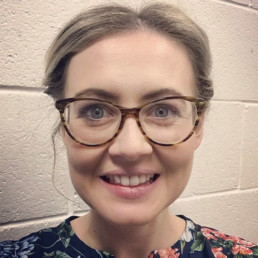
Written by Bethan Hughes
Bethan Hughes is a Second in English in a West Midlands secondary school and joint contributor to the LGBTQ+ toolkit on Diverse Educators.
I am a 33-year-old lesbian who has, probably only recently, become really quite comfortable in my own skin. The irony being that this is, probably only because of a lifetime of enduring being uncomfortable. When you exist outside the norms of society and outside of the dominant discourse, there is an odd sense of not quite ever being ‘inside’ where it is comfortable and instead watching from the other side of the metaphorical windowpane.
What does it actually mean to be comfortable? Comfortable is synonymous with safety, being content with where you are and what’s happening and maintaining the status quo. Comfortable keeps things the same. Being comfortable allows the same practices to continue. Which unless you are a white, heterosexual male might not be beneficial to you and contribute, whether directly or indirectly, to more challenges for others.
Yet to shatter, or at least wobble, the status quo involves putting yourself into a more uncomfortable position. It means speaking up in a meeting if you don’t agree with something or holding someone to account if their views or actions don’t align with what you believe to be morally right. It means having difficult conversations which might not go the way that you want them to go. It’s taking a deep breath, closing your eyes and being prepared to be the first domino to fall. And that’s tough. Especially when you could choose to take the easier route by keeping your mouth shut and trundling on with your daily business. And so, the cycle continues.
Why should I want to be uncomfortable, I hear you say? If we (truly) want to live in a just society then we all need to play our part. But we can’t do this if we are only focusing on the struggles that we personally face; as Martin Luther King said, “no one is free until we are all free.” If we can begin to take steps towards change by only being a tad uncomfortable, surely this is something that we can all commit to?
What might this look like in my educational setting?
- Always start from a place of mutual respect. If you are heading into difficult conversation territory, then this is always a solid start.
- When a student makes a comment or asks a ‘difficult’ question – explore it. Instead of ignoring a ‘that’s so gay,’ comment, address it and explain why the phrase is derogatory. Sometimes a conversation can begin to change someone’s attitudes or at least begin to challenge their ingrained value system.
- If you notice someone being spoken over in a meeting or their ideas not being heard; use your privilege to support that person or to credit their ideas. Consider when you are the most, or one of the most, powerful people in the room and how you can use this to amplify the voices of others. Or, if you don’t hold that power, can you join forces with someone else and support each other?
- Speak to share and not change minds. Use your voice to share your experience or your own feelings whilst being mindful that a conversation often won’t be enough to completely change someone’s mind. Share first and understand that changing minds can be a longer process.
- Speak from your personal experience and not on behalf of others. Also be open to credible sources when discussing information that is not personal to you.
- If you notice something that needs addressing, bring it up to those who have the power to change it. Perhaps the display in the science corridor only celebrates the achievements of men. Perhaps there is a lack of diversity in your English curriculum. Perhaps there is limited policy or support for your LGBTQ+ students. Be brave enough to have that conversation and to do something about it.
- Be patient with yourself and others. Change takes time but begins once we start to go into those uncomfortable spaces.
It’s easy to do nothing but if you have the privilege to do so; be 10% braver and have that conversation so that some of us who are perpetually uncomfortable, can be a little more comfortable.

